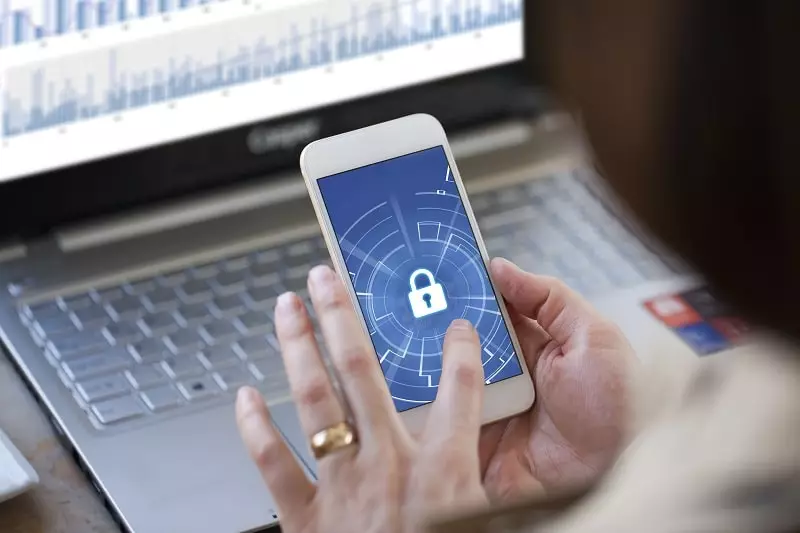How Secure Is Your Password? Tips to Improve Your Password Security
Table of Contents
- By David Lukic
- Published: Aug 05, 2020
- Last Updated: Mar 18, 2022
Any good IT article on computers and network security will address the importance of strong, secure passwords. However, the challenge of good passwords is that most people have a hard time remembering them, so they use simple or obvious ones that pose a security risk. It’s a quandary that many IT professionals struggle within their company.
How Hackers Can Steal Your Passwords
Computer hackers and cybercriminals have one up on us because they are using computers and devices that can crack a password in less than a second. While we are using weak passwords for even our most private and sensitive data like banking logins, credit cards, and network access. So, as we get worse, they get better and better and have an easier time breaking into our stuff and stealing our data.
Ransomware, hacking, and data breaches are some of the major causes of identity theft. In so many of these cases, the breach could have been prevented using better security, unbreakable passwords, and data encryption. The easiest of the three to fix is the password issue. So, let’s get started.
Should You Use a Password Checker?
Even though it’s comforting to think that using these password checkers will give us a sense of security, they could be misleading. A better solution is to craft a stronger, more difficult, long password, which is almost impossible for the hacker to guess, break, or stumble upon.
There are quite a few password checkers online where you can test a password to see how strong it is. The problem is that even if these sites tell you that your password is strong and less likely to be cracked, it may not thwart hackers.
Cybercriminals are very crafty, and they know that most people use information from their own lives when devising passwords. They do so to remember them easier. So, if you use your cat’s name, combined with your kid’s birthdate, a hacker only has to do a little research online and see that you posted your cat’s name in social media and public records show when your son was born. Now he or she has all the ingredients to hack your password.
What is a Password Vault?

A password vault is a great program out there that can save all your passwords in one place, and they are encrypted, so all you need to remember is one, single, long password. Once you set that, the rest of them are stored safely in the vault. Using browser extensions, your password vault can log you in automatically without you having to look anything up or type in a password. It’s a solid investment in the security of your network, computer, and accounts. Some antivirus software has password vaults included for free, and the Mac ecosystem includes Keychain Access, which saves them all in the cloud, encrypted of course for security.
Since our lives have become incredibly infiltrated by the digital world, we all have dozens of online accounts each needing unique passwords. Even the youngest, smartest, and spry of mind cannot possibly remember all those combinations to secure accounts, hardware, and software. It’s a minefield of disaster, so most people just give up and use simple passwords, and they reuse them for everything!
How Safe is Your Password?

According to the top password experts, good, strong, and secure passwords have a few things in common:
- They are long.
- They use a combination of letters, numbers, and symbols (with alternating capitalization).
- They do not include any information or clues from our personal lives (e.g., cat’s name, kid’s birthdate, etc.)
- A unique password is used on every login.
Some things to avoid when creating a new password are:
- Using words or phrases that are meaningful to you.
- Do not use symbols at the beginning or end but mix them in with the other characters.
- Stay away from keyboard patterns or common phrases.
- Don’t use a password that is shorter than 12 characters.
Some password vaults generate automatic passwords for you, as does the Mac Keychain system. Secure password generators are using phrases but substituting symbols and numbers for letters. For example: Say you love the Red Sox, and your friend’s wedding day was 11/9/90. Your password might look something like this:
11R3d9!S0x90
When we decode this, we see that the first number is the month of the wedding date, then we use a capital R, number three, and small d to spell out Red. Then we use the nine from the wedding day, throw in a random symbol (!) and then spell out Sox using a zero for the O. We end it with the 90 from the wedding year. This creates a complex password of seemingly random characters, but we can remember it because it has all the pieces we need.
Another very effective type of password comes from the Mac system when auto-generated. It uses four random words or sets of letters. These words are separated by hyphens. An example might be:
tree-horse-monkey-pail
Both of these types are incredibly difficult to decode, even using a password code breaker.
The bottom line is, if you want to keep your stuff safe, always use unique, long, strong passwords for every single one of your logins and change them often. A password vault comes in handy for that too.
















